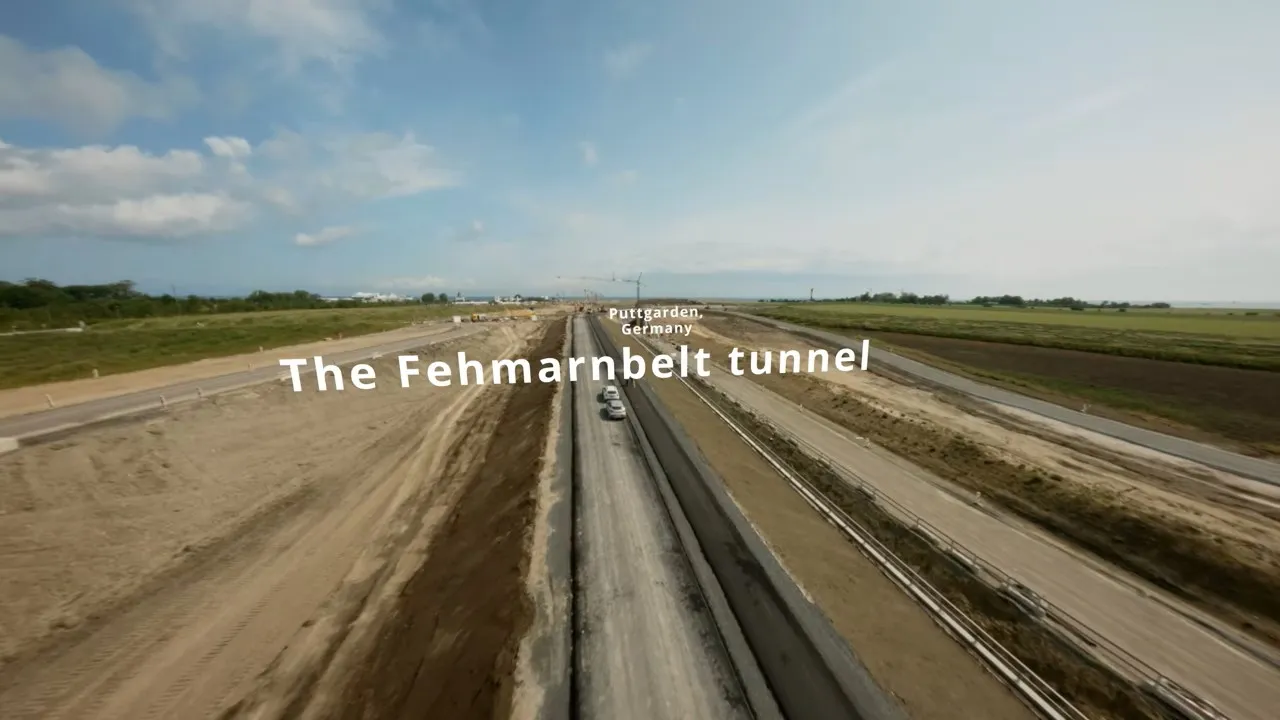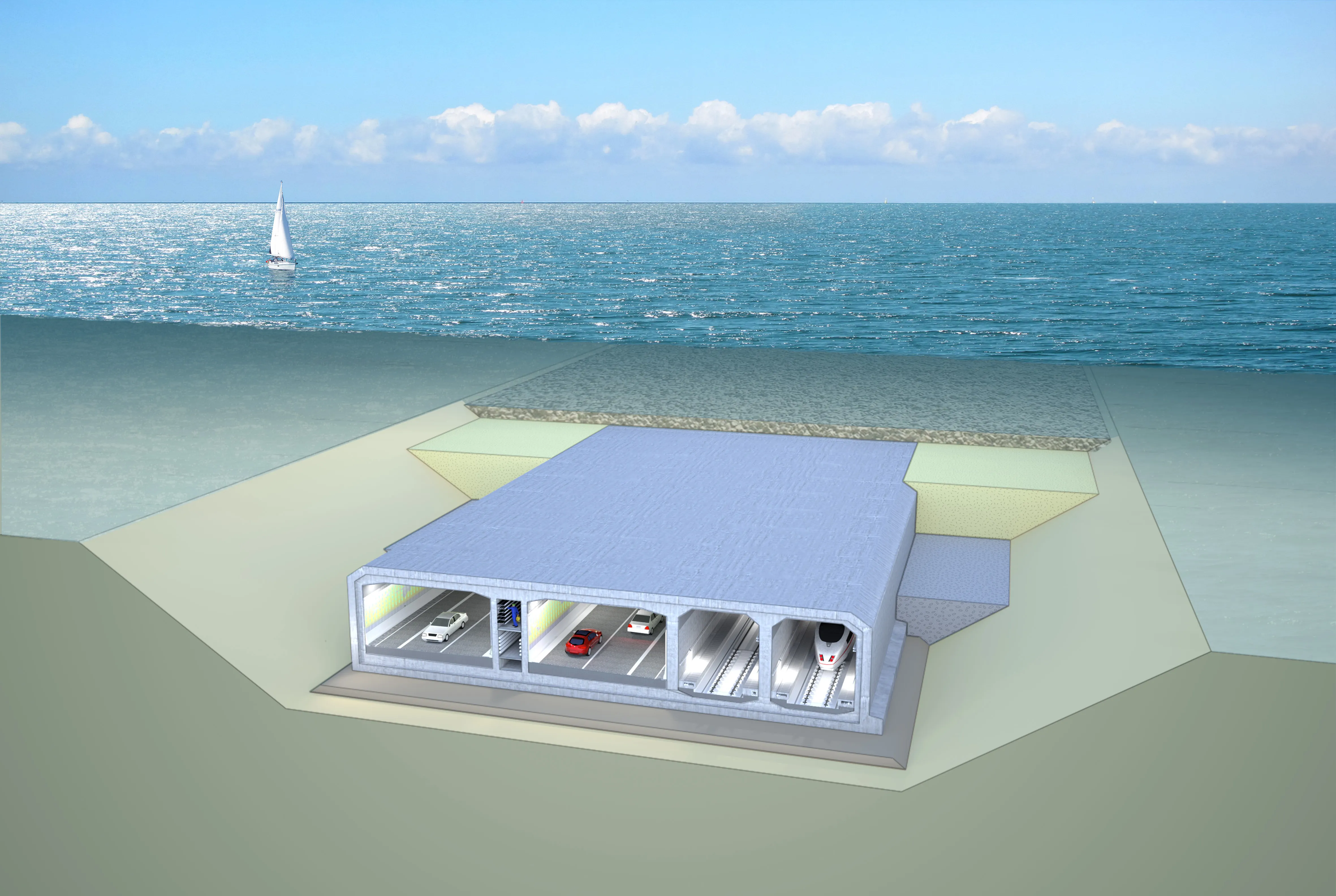
In perfect weather conditions, internationally renowned drone pilot Dane Grace flew his drone over the German and Danish construction sites for the Fehmarnbelt tunnel.
On his first visit to the construction site, he was able to film the construction of the tunnel element factory on the Danish island of Lolland. Now he was back on site. His spectacular footage shows the progress of work on the tunnel portals in Germany and Denmark, as well as the production of tunnel elements in the large factory in Rødbyhavn.
The Fehmarn Belt Tunnel could open by mid-2029. Around 1,500 tonnes of reinforcement for casting the concrete tunnel elements are produced weekly for the 17.6km-long structure. Formwork specialist Peri supplied 10,000 tonnes of formwork needed for construction of tunnel elements.
The individual elements will eventually be lowered into place and connected together on the bottom of the Baltic Sea, according to the client Femern, part of the 100 per cent state-owned company Sund & Bælt. Femern is tasked with planning, building and operating the fixed link across the Fehmarnbelt between Denmark and Germany.
The two contractor consortia, Fehmarn Belt Contractors (FBC) and Fehmarn Link Contractors (FLC), are responsible for the construction of the tunnel that will run between Rødbyhavn on Lolland and Puttgarden, a ferry harbour and a village on the German island of Fehmarn.
Click here to see the video.







